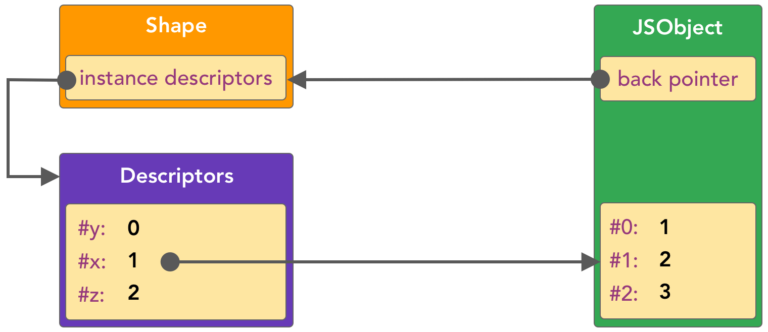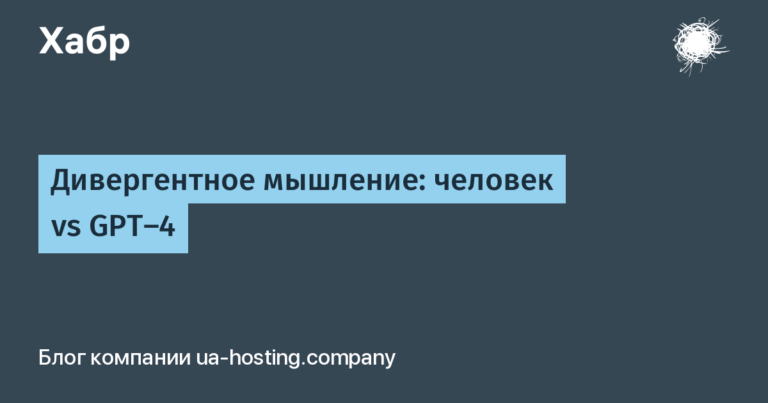Taxes in Kyrgyzstan in 2023
In Kyrgyzstan, the state provides one of the most loyal business conditions in the post-Soviet space for foreign citizens. In 2023 – one of the most popular countries for business relocation along with Armenia and Kazakhstan and Georgia. Today, about the features of taxation in Kyrgyzstan.
The status of a resident of Kyrgyzstan and its features
A citizen of another country is considered a tax resident of the Republic if he lives in Kyrgyzstan for at least six months (that is, 183 days), but all within the same calendar year, that is, in the interval from January 1 to December 31. At the same time, residents automatically have obligations in the territory of Kyrgyzstan, and they need to pay taxes on all income received, no matter in which country this money was transferred to them. While non-residents pay taxes only on the income they received on the territory of the Kyrgyz Republic.
Work in Kyrgyzstan under an employment contract: do I need to pay taxes?
If an individual has the status of a non-resident, then such citizens should pay personal income tax only if they work for a local company, that is, under an official employment contract. In this case, the employer is responsible for calculating and paying taxes on their salary. But depending on whether the country has a double taxation treaty, non-residents may still pay taxes in their country. This point needs to be clarified.
If non-residents work for a foreign company, then they must pay taxes:
to the budget of the country of which they are citizens (if the company is registered there);
to the budget of the country of their citizenship and the state where the company is registered.
In Kyrgyzstan, a fairly loyal personal income tax is provided. The rate is only 10% and does not depend on the level of income. The rules apply to all taxpayers, regardless of their status.
Employers, in addition to personal income tax, must accrue and withhold social contributions:
to the Social Fund 12% is charged on salaries;
medical insurance (mandatory) – 2%;
recovery fund – 0.25%, also in the form of an accrual;
state PF – 2% is withheld from the employee, that is, it is believed that the person pays this money himself;
Social fund – 8%.
If a non-resident of Kyrgyzstan is a freelancer, then he still has to pay personal income tax at 10% if he receives income in the territory of the Republic. If the freelancer is a resident, then he pays tax on any of his income.
General information about taxes for business in Kyrgyzstan
The taxes listed are for individuals who are employees or freelancers. For business in Kyrgyzstan, national and local taxes apply. The public ones include, for example:
income tax;
sales tax;
VAT;
excise tax, etc.
Basically, these are taxes provided for by the general taxation regime. There are also special regimes – in addition to simplified taxation, this is a tax on e-commerce, on mining, on work in a free economic zone, etc. And, finally, the legislation allocates local taxes – on property and on land.
General information about the main tax regimes
There are several tax regimes in Kyrgyzstan:
general;
simplified on the basis of a single tax;
special regime (“simplified”) based on a patent;
special (for example, in free economic zones or extending to those who carry out mining).
The main characteristics of the general taxation regime:
income tax | sales tax | VAT |
The base is the positive difference between total income and deductible expenses for the year | Revenue from the sale of goods, the provision of services or the performance of work, but net of VAT | The basis is the cost of delivery |
Rate 10% | The rate is from 1 to 5%, the specific value is determined by the type of activity, as well as the form of payment (cash or non-cash) | Rate 12% |
Period – 1 year | Period – 1 month | Period – 1 month |
A simplified system may involve a single tax that replaces the main taxes (although not all, but the most serious payments) – on profits, sales and VAT.
If an enterprise or individual entrepreneur has employees, he must withhold and transfer personal income tax from their salary. At the same time, this taxation regime is suitable only for those entrepreneurs whose turnover does not exceed 30 million soms, that is, this does not apply to representatives of large businesses.
An important point is that those who pay VAT cannot be on a single tax, this should be taken into account when registering an enterprise and choosing a system. The tax period for such a system is 1 quarter.
The main characteristics of the simplified taxation system:
Kind of activity | Cash rate | Rate for non-cash form |
Processing of agricultural products, manufacturing | 4% | 2% |
Other activities | 6% | 4% |
Services of catering establishments, baths and saunas (except municipal ones) | 8% | |
The advantage of a simplified patent-based system is that it does not involve reporting, which makes life much easier for the entrepreneur. But only entities with a turnover of up to 8 million soms per year, that is, small businesses, can switch to it. They can buy a patent for a short period of time or immediately for a year.
Local taxes
In Kyrgyzstan, local taxes are property tax and land tax. For them, the status of the owner of real estate or land does not matter. Both residents and non-residents are required to pay these taxes.
Property tax payers are the owners of real estate or vehicles. The following conditions are established:
the value of real estate is determined taking into account the price of 1 sq. m and the location of the object;
the taxable value of transport is determined by the book value or capacity;
the rate for residential real estate is 0.35%;
the rate for non-residential buildings is 0.8%;
The rate for transport is determined depending on the engine size.
Land tax payers are all owners of land plots in Kyrgyzstan. The rate for plots other than farmland is 1%.
The deadline for paying property tax for individuals is September 1 of the current reporting year.
A legal entity is registered in Kyrgyzstan: what taxes do I have to pay?
Most often, foreign citizens choose the form of an LLC – a limited liability company. For such companies, both general and special taxation regimes are provided. Depending on the type of activity, in addition to income tax and VAT, they may also pay excise duty, subsoil use fees and other taxes, including local ones.
For small companies, at least in the early stages, the simplified taxation system based on a single tax is suitable. But if this is an innovative enterprise, and it is registered in the High Technology Park, then a separate taxation regime is provided for it. The tax rate is 1% of revenue, and for some categories of employees, personal income tax is reduced to 5%.
IP in Kyrgyzstan: what taxes do you need to pay?
The status of an individual entrepreneur in the Republic is not tied to the status of a resident, the conditions are the same for everyone. An entrepreneur can choose (taking into account the characteristics of his activity) one of the taxation regimes provided for individual entrepreneurs. An entrepreneur can work:
on the general taxation system with a rate of 10% of the IP revenue, as well as 12% VAT and sales tax, depending on the type of activity;
according to a simplified system with a patent – rates can be viewed on the website of the tax office;
on a single tax – according to general rules, most often non-residents work in the IT sector, for which a tax of 6% is provided.
The payment of taxes for individual entrepreneurs is provided quarterly.
If an entrepreneur provides services in electronic form, whether to business or to the end consumer, including selling the rights to intellectual property created by him, then the tax will be 2%. But only if he conducts such electronic commerce on the territory of Kyrgyzstan.
If the subject chooses the regime for electronic commerce, then the same rules generally apply to him as with the STS on a single tax and you do not need to pay three fundamental taxes.
There is also a special tax regime for mining. The tax base in this case is the amounts that are charged to the subject for the consumption of electricity when mining cryptocurrencies. The base includes the full amount, including VAT and sales tax. The tax rate is 10%. But at the same time, the subject is exempt from paying income tax, sales tax and VAT.
Common situations and questions
What if a non-resident has real estate that they rent out?
If the property is located on the territory of Kyrgyzstan, then they pay property tax. In addition, non-residents pay income from the lease of real estate only if the property is located in Kyrgyzstan. If he is abroad, then the tax is paid to the country of residence, unless otherwise provided by international law.
Where to pay taxes to a non-resident when receiving an inheritance?
There is no inheritance tax in Kyrgyzstan. Payment in the country of residence – according to the legislation in force there.
How are dividends taxed?
In Kyrgyzstan, the same rules apply regardless of status. They provide 10% tax on dividends for both groups. But non-residents pay tax in the event that these dividends are accrued to them by companies from Kyrgyzstan, and at the same time they do not apply to enterprises for which a zero rate is provided. If it is a foreign company, then non-residents will pay taxes in the relevant jurisdiction.
Residents pay tax, but with a caveat. Those dividends that are accrued to them by foreign joint-stock companies are subject to taxation; this requirement does not apply to Kyrgyz ones.
How is the sale of property taxed?
If this property was located on the territory of the Republic and was sold here, then it is subject to personal income tax in the amount of 10%, which are calculated from the level of value increase. It is not only about real estate, but also about intellectual property rights and securities. If a non-resident owned this property for at least 2 years, then it is exempt from taxation.
How to file a declaration?
Individuals in Kyrgyzstan fill out the declaration annually by April 1 of the year following the reporting year. If a non-resident has a tax agent, that is, the employer has already paid personal income tax for him, then you do not need to file a declaration, because the agent also included these amounts in his reporting. For other taxes, reports are submitted within the time limits set for them – for example, for VAT, a declaration is submitted monthly.
If any questions cause difficulties, it is better to first contact a tax consultant or a specialist of a law firm in order to minimize risks and avoid situations in which you then have to deal with correcting errors.




